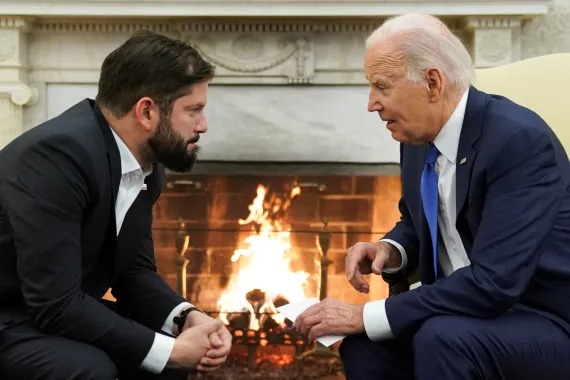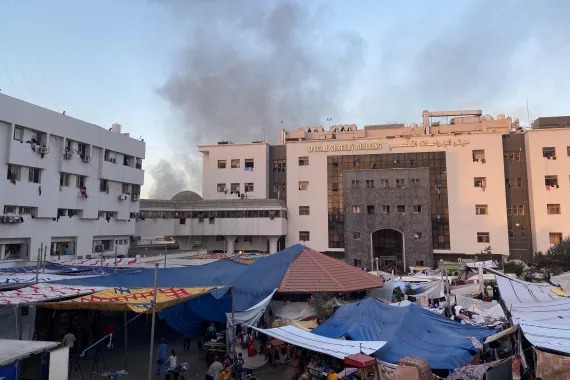In an unprecedented move, Latin American leaders from countries like Bolivia, Chile, and Colombia have severed diplomatic ties with Israel, condemning what they perceive as an “aggressive and disproportionate Israeli military offensive” in the Gaza Strip. This stark diplomatic backlash signals a departure from the more cautious stance adopted by Western leaders, such as the United States President Joe Biden.
Cold War Legacy Shapes Latin American Solidarity
This isn’t the first time Latin America’s leftist leaders have taken a strong stance against Israel. Analysts draw parallels to Fidel Castro’s decision in 1973, during the Cold War, when he broke ties with Israel as a rebuke against Israeli aggression and its ally, the United States. The historical context of U.S.-backed military dictatorships in Latin America has primed the region’s leaders to sympathize with the Palestinian cause.
Displacement, Decolonization, and Ideological Divides
Latin American leaders’ solidarity with Palestine is also rooted in shared experiences of displacement. The historical displacement of Palestinians during Israel’s establishment resonates with Latin America’s own struggles, where indigenous communities continue to grapple with dispossession and racial discrimination from colonial legacies. As Manuel Rayran, an international relations expert, notes, progressive movements in Latin America see the Palestinian cause as one of decolonization, reflecting their own battles against inherited inequalities.
‘Pink Tide’ and Potential Costs
Support for the Palestinian cause aligns with ideological lines in Latin America. The “pink tide,” a progressive movement marked by leftist victories in countries like Mexico, Argentina, Bolivia, Peru, Honduras, and Chile, demonstrates a broader political trend. However, as seen in Colombia, where President Gustavo Petro’s approval ratings have dropped amid a right-wing backlash, taking a stand against Israel comes at a cost. Petro’s comparison of Israeli remarks to Nazi ideology led to the suspension of Israel’s military exports to Colombia, highlighting the potential economic and political risks for leaders adopting such positions.
In the face of criticism from Latin American nations, Israel has called for support of its right to protect its citizens, while branding the diplomatic moves as aligning “with Venezuela and Iran in support of Hamas terrorism.” As the Latin American leaders escalate their condemnation, the international community watches closely, with speculation that these actions might influence the U.S., Israel’s closest ally, to call for a ceasefire in the ongoing conflict.
This bold diplomatic rebuke from Latin America not only emphasizes a commitment to human rights and international humanitarian law but also poses potential risks for the leaders involved. As the world grapples with the complexities of the Israel-Gaza conflict, the Latin American “pink tide” stands as a powerful force challenging the status quo.
















